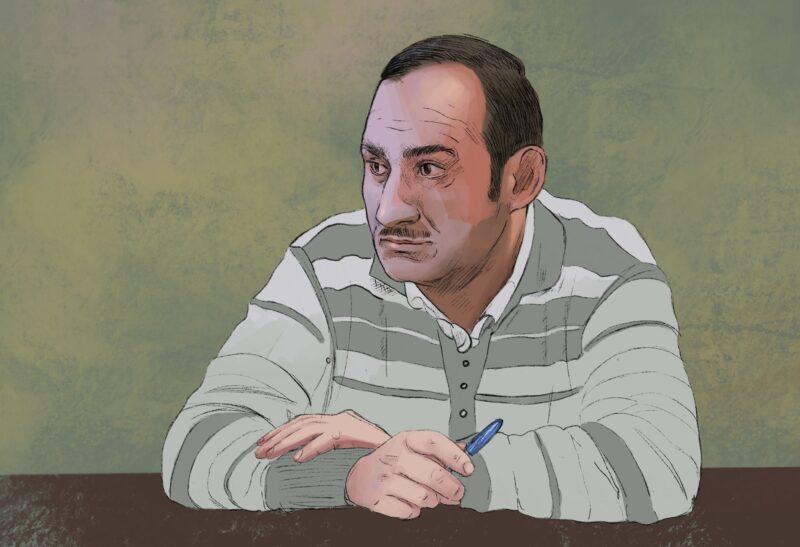Azerbaijan-Armenia relations, human rights, mutual cooperation issues were included in the document
Starting from March 13, pro-government media and TV channels in Azerbaijan criticized the European Union. The reason is the new report of the European Union (EU) on Azerbaijan.
The reason behind it is the Committee on Foreign Relations of the European Union, which accepted the Report on Relations Between the EU and Azerbaijan prepared by Eliana Zovko (member of the European People’s Party, Czech Republic) on her own initiative. The document was prepared to take into account a number of international pacts, as well as agreements concluded between the EU and Azerbaijan, and consists of several main headings and provisions.
The report also noted that the Nagorno-Karabakh conflict, which has been going on for more than 30 years, and the war between Armenia and Azerbaijan, led to the occupation of territories recognized as sovereign territories at the international level.
The report states that deadly military clashes between Azerbaijan and Armenia continue to flare up from time to time. In 2020, the conditions of the ceasefire of November 9, 2020, which was accepted after the 44-day war waged by Azerbaijan, have not been fully fulfilled.
Resolution of the conflict and normalization of Armenian-Azerbaijani relations
The report states that the members are convinced of the impossibility of achieving lasting peace between Armenia and Azerbaijan through military means and the use of force. It is also required to find a comprehensive political solution in accordance with international law. At the same time, the EU members confirmed that for the effectiveness of the comprehensive peace agreement, there should be provisions that include the recognition of the integrity of the sovereign territory of Armenia, the safe return of all refugees and internally displaced persons to their homes, and the provision of the rights and security of the Armenian people living in Nagorno-Karabakh and other areas adversely affected by the conflict. they did.
The document welcomed the many steps taken to eliminate differences of opinion between the leaders of Armenia and Azerbaijan and to achieve sustainable and permanent peace in the region, and the continued participation of both countries in the negotiations was highly valued. The members called for both sides of the conflict to continue on this path, to reach an agreement to take concrete steps forward, and to ensure a safe and prosperous environment for the well-being of all ethnic groups living in the region.
At the same time, the members welcomed Azerbaijan’s commitment to normalizing relations with Armenia, withdrawing Armenia’s armed forces from the region and guaranteeing the safety of transport links between the western regions of Azerbaijan and the Nakhchivan Autonomous Republic and the transportation of consumer goods in both directions in order to ensure the unhindered movement of citizens and vehicles. they reminded.
The extensive involvement of the EU
The report also noted that during the war in 2020 and immediately after the war, the EU took a passive position and created an opportunity for countries such as Russia, Iran, and Turkey to continue their influence in the region. The report also mentions that more preventive diplomacy by Europe could prevent this.
The members noted that the EU is ready to participate more actively in the resolution of ongoing conflicts in the region and strongly supported the call of the President of the Council of Europe Charles Michel for bilateral meetings between the leaders of Armenia and Azerbaijan and the mediation initiative.
It was added that the work done by the EU’s special representative for the South Caucasus and Georgia in the context of the crisis in the region is supported.
The EU’s humanitarian assistance to people affected by the conflict in Nagorno-Karabakh and surrounding regions was welcomed. The Commission also calls for additional funding for demining, as well as equipment, training, and risk education. At the same time, the Commission calls on the EU to increase assistance in areas in need, including Nagorno-Karabakh, to encourage appropriate measures to increase confidence, to promote inter-religious and inter-ethnic dialogue, to protect the rights of minorities and to develop relations between citizens, to strengthen the border called to lay the foundations of sustainable and peaceful life on both sides.
Human rights and fundamental freedoms
In order for the cooperation between the EU and Azerbaijan to continue in the future, the report states that it is necessary for the country to meet international standards and international obligations, especially obligations related to democracy, human rights, the rule of law, and fundamental freedoms, and to make effective and significant progress in this direction. In particular, freedom of expression and assembly, good governance, minority rights, media freedom, and gender equality are among the demands.
Good governance, justice, the rule of law, and the fight against corruption were also mentioned among other demands.
Members also expressed concern about the lack of independence, impartiality, and efficiency of the judicial system, as well as about the transparency of decisions and procedural deficiencies. In order to ensure the complete independence of the judicial system in Azerbaijan, they called for reforms in the judicial and prosecutor’s offices.
The members regretted the limited progress achieved by Azerbaijan in the field of prevention of corruption and the fight against bribery.
Security and geopolitical issues
The members expressed deep concerns about the Declaration on Cooperation between Azerbaijan and Russia signed in February 2022 in Moscow but added that they welcomed Azerbaijan’s official support for the independence, sovereignty, and territorial integrity of Ukraine, as well as the humanitarian aid it provided to Ukraine during the war. It was also noted that the members supported the resolutions adopted by the UN General Assembly regarding Azerbaijan’s war of aggression against Ukraine and urged Azerbaijan not to evade sanctions against Russia.
The report noted that the security cooperation between the EU, its member states, and Azerbaijan was welcomed, and it was added that full support was given to the further increase of cooperation in the fight against terrorism.
The illegal and massive use of the Pegasus spying program and the violation of cyber security and the repressive actions of the Azerbaijani authorities against journalists, bloggers, human rights defenders, lawyers, and politicians were also condemned and the Azerbaijani authorities were called to refrain from taking this path.
Economic cooperation
The report also emphasized the great strategic role of Azerbaijan as a fuel energy supplier. The Commission was called upon to support foreign investments by international partners aimed at expanding EU-Azerbaijan relations. A call was made to the Azerbaijani authorities to accelerate the development of renewable energy sources and take important steps to increase energy efficiency.



